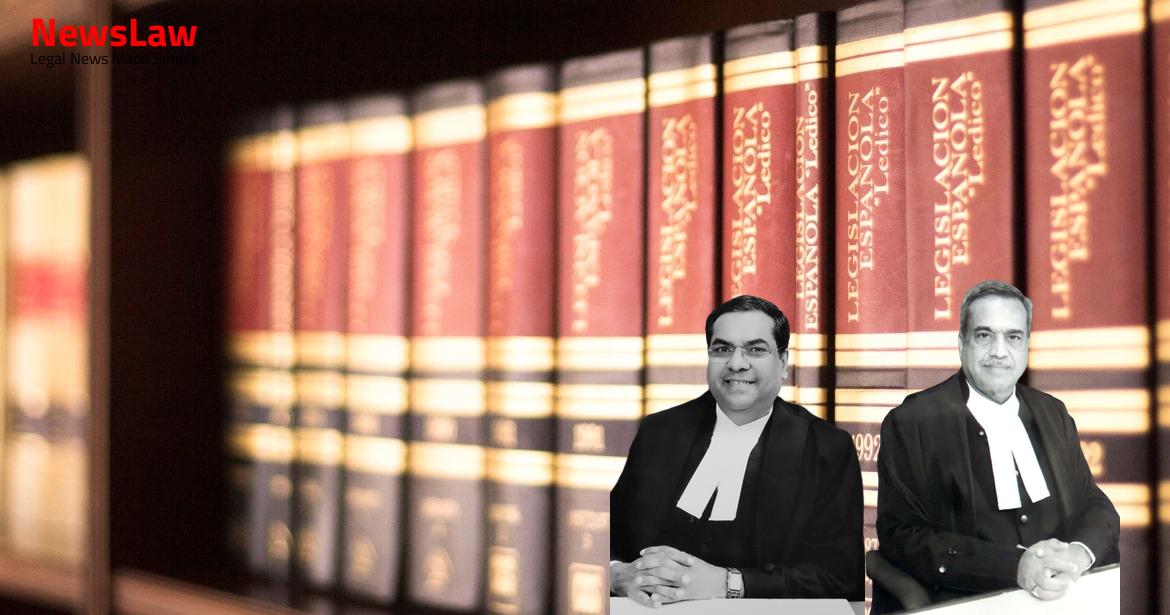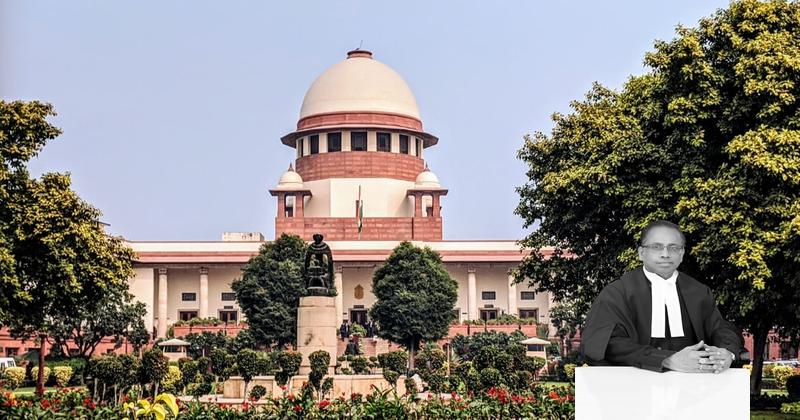As a consequence, the detenue was arrested, followed by a detention order passed by the detaining authority in exercise of the powers conferred under Section 3 of the Conservation of Foreign Exchange and Prevention of Smuggling Activities Act, 1974 (hereinafter referred to as “COFEPOSA Act” ).
Also Read: https://newslaw.in/supreme-court/errors-in-factual-findings-case-summary/
Following the heels of the said order, the respondents made an endeavor to serve the grounds of detention along with the relevant documents on the very next day i.e., 20.09.2023 with due translation in the Bengali language. Interestingly, the detenue, through the appellant, filed the Writ Petition on 03.10.2023 inter alia contending that the respondents have not served the grounds of detention.
An order of detention being an exception, if two views are possible, the one in favor of the detenue should find favor with the Court. The panchnama bears the signature of the detenue with a remark “ I have refused to receive any document ”, this sufficiently indicates that twin test enshrined in Article 22(5) of the Constitution of India was duly complied with. Of these two parts there lies an underlying duty and obligation on the part of the authorities in not only serving the grounds of detention as soon as the case may be, after due service of the detention order and communication of the grounds of detention along with the documents relied upon in the language which he understands, but also for the purpose of affording him the earliest opportunity of making a representation questioning the detention order.
While the background facts are not required in detail, the grounds of detention which determine the detention order ought to be found in the grounds supplied to the detenue. Therefore, it becomes a cardinal duty on the part of the authority that serves the grounds of detention to inform a detenue of his right to make a representation. In such a scenario, the question as to whether the grounds of detention contained a statement that a detenue has got a right to make a representation to named authorities or not, pales into insignificance.
We may clarify, in a case where a detenue receives the ground of detention in the language known to him which contains a clear statement over his right to make a representation, there is no need for informing verbally once again. State of Maharashtra [1962 Supp 2 SCR 918 :
AIR 1962 SC 911 : (1962) 1 Cri LJ 797] and Hadibandhu Das v. District Magistrate [(1969) 1 SCR 227 : AIR 1969 SC 43 : 1969 Cri LJ 274].”
(emphasis supplied) State of Bombay v. xxx xxx xxx 12…
The conferment of the right to make a representation necessarily carries with it the obligation on the part of the detaining authority to furnish the grounds i.e., materials on which the detention order was made. Furthermore, the use of the words “as soon as may be” with the obligation to furnish the grounds of the order of detention, and the fixing of another time limit, viz., the earliest opportunity, for making the representation, makes the two rights distinct. On an infringement of either of these two rights the detained person has a right to approach the Court and complain that there has been an infringement of his fundamental right and even if the infringement of the second part of the right under Art. (5) forms part of Part III of the Constitution, its provisions have the same force and sanctity as any other provision relating to fundamental rights. The only thing which emerges from the discussion is that while the authorities must discharge the duty in furnishing grounds for the order of detention “as soon as may be” and also provide “the earliest opportunity to the detained person to make the representation”, the number of communications from the detaining authority to the detenu may be one or more and they may be made at intervals, provided the two parts of the aforesaid duty are discharged in accordance with the wording of cl. The High Court negatived the contention raised on behalf of the appellant not on the ground that the appellant knew enough English, to understand the case against him, but on the ground, as already indicated, that the service upon him of the Order and grounds of detention in English was enough communication to him to enable him to make his representation. He has first contended that when the Constitution speaks of communicating the grounds of detention to the detenue, it means communication in the official language, which continues to be English; secondly, the communication need not be in writing and the translation and explanation in Hindi offered by the Inspector of Police, while serving the order of detention and the grounds, would be enough compliance with the requirements of the law and the Constitution; and thirdly, that it was not necessary in the circumstances of the case to supply the grounds in Hindi. In order that the detenue should be in a position effectively to make his representation against the Order, he should have knowledge of the grounds of detention, which are in the nature of the charge against him setting out the kinds of prejudicial acts which the authorities attribute to him. A perusal of the panchnama clearly indicates the adequacy of his knowledge in English, as he has not only signed the document in English but also made his objection with respect to receipt of the grounds of detention. The detenue also read the grounds of detention and the relevant documents.
Also Read: https://newslaw.in/supreme-court/dismissal-of-application-seeking-bail-relief/
Pending application(s), if any, stand(s) disposed.
Case Title: SARFARAZ ALAM Vs. UNION OF INDIA (2024 INSC 18)
Case Number: Crl.A. No.-000045-000045 / 2024



